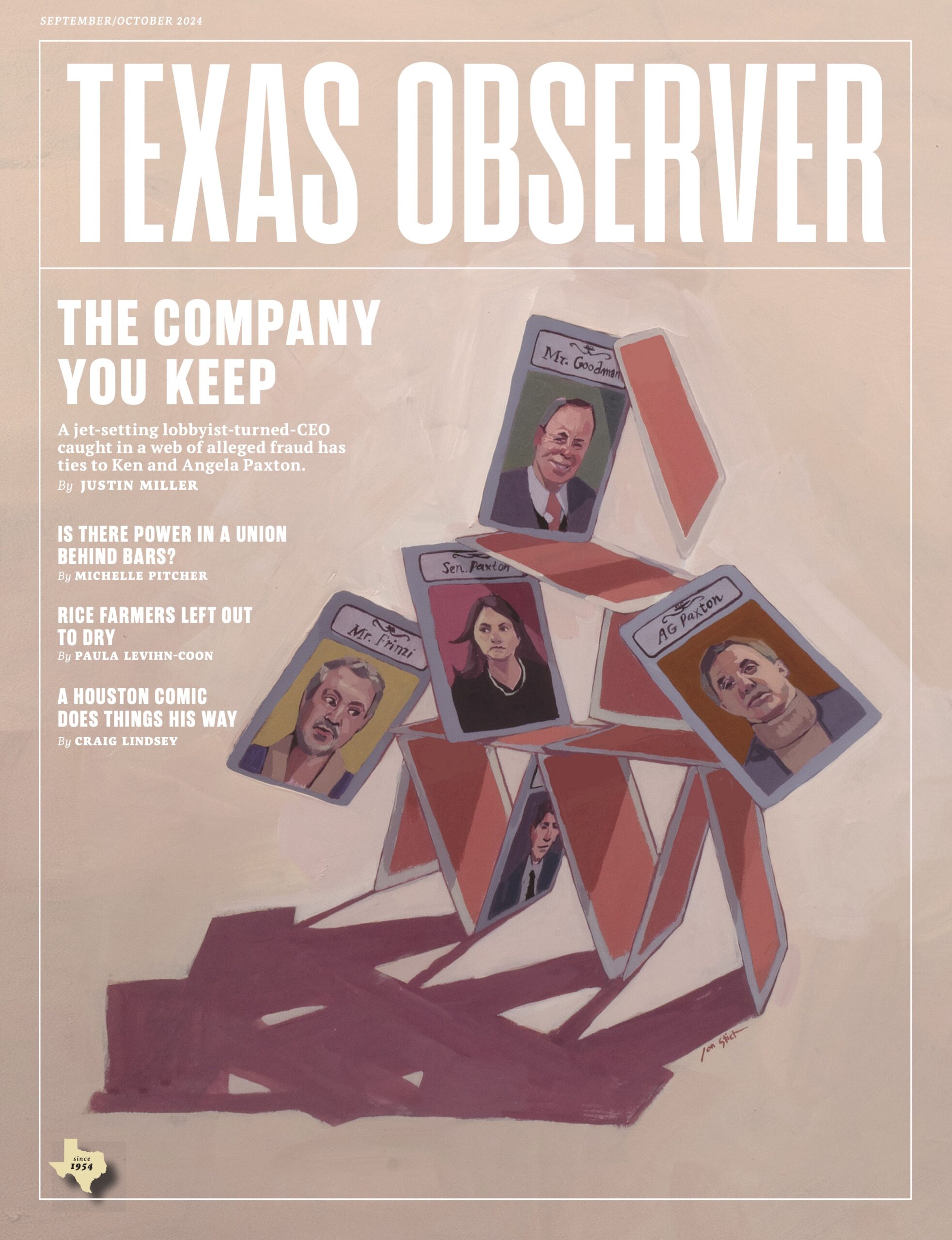Texas Observer readers,
As we were wrapping up edits on the stories in this issue, a few things happened in the nation’s politics. An incumbent president and presumptive nominee abandoned his reelection in the face of a historic pressure campaign. His party then rallied, with unexpected speed, around his vice president, a candidate who has a chance to break barriers so significant as to be cheapened by the cliché “glass ceilings.” And all this came, one could almost forget, just after the Republican presidential nominee was nearly killed by a gunman.
Yet you’ll find few references to those events, which could plausibly recast the trajectory of global history, in these pages. That’s because the longform stories in our magazine are created on a longer, slower timeline than the whirling news. They are edited, reedited, paired with art, fact-checked, copyedited, and proofread. (Unlike on the internet, a mistake in print lasts forever, and we act accordingly.) Even the short pieces you find here cannot hang on the latest sensation, because days or weeks pass between an issue leaving our hands for good and it arriving in your mailbox.

So, why do we persist in packaging journalism this way? I’d give two reasons. First, organizing stories around our timeline is what I’d call a productive constraint. It forces us to favor the enduring over the ephemeral—to investigate misdeeds that would otherwise remain hidden, to explore the structures that shape events, and to interrogate history.
Second, I believe the magazine remains vital as a form. Surrounding our main feature stories, you’ll find an array of shorter pieces we call “departments.” These include a mini-profile, a Q&A, a visual essay of photos or illustrations, a book review, and a travel dispatch. In this issue, the topics of these stories range from a formerly incarcerated comedian to political poetry to a festival celebrating a certain fruit. The places featured span from Luling to Houston to the Middle East.
In this September/October issue—led by a groundbreaking investigation into a sprawling alleged fraud with threads connecting to both Ken and Angela Paxton—I hope you’ll encounter that hallmark of the magazine: variety. The Observer leans decidedly toward stories of the deadly serious sort, but I believe you’ll also find here inspiration and even levity. Whether you crack this issue open the day it arrives or let it linger around the house for weeks or months won’t matter too much. In a world where the media runs herd-like toward the shiniest object, and even assassination attempts can feel like old news in a week’s time, these stories will wait for you.
Solidarity,

Note: Stories from the September/October issue will appear online here. To receive our print magazine, become a member here.







